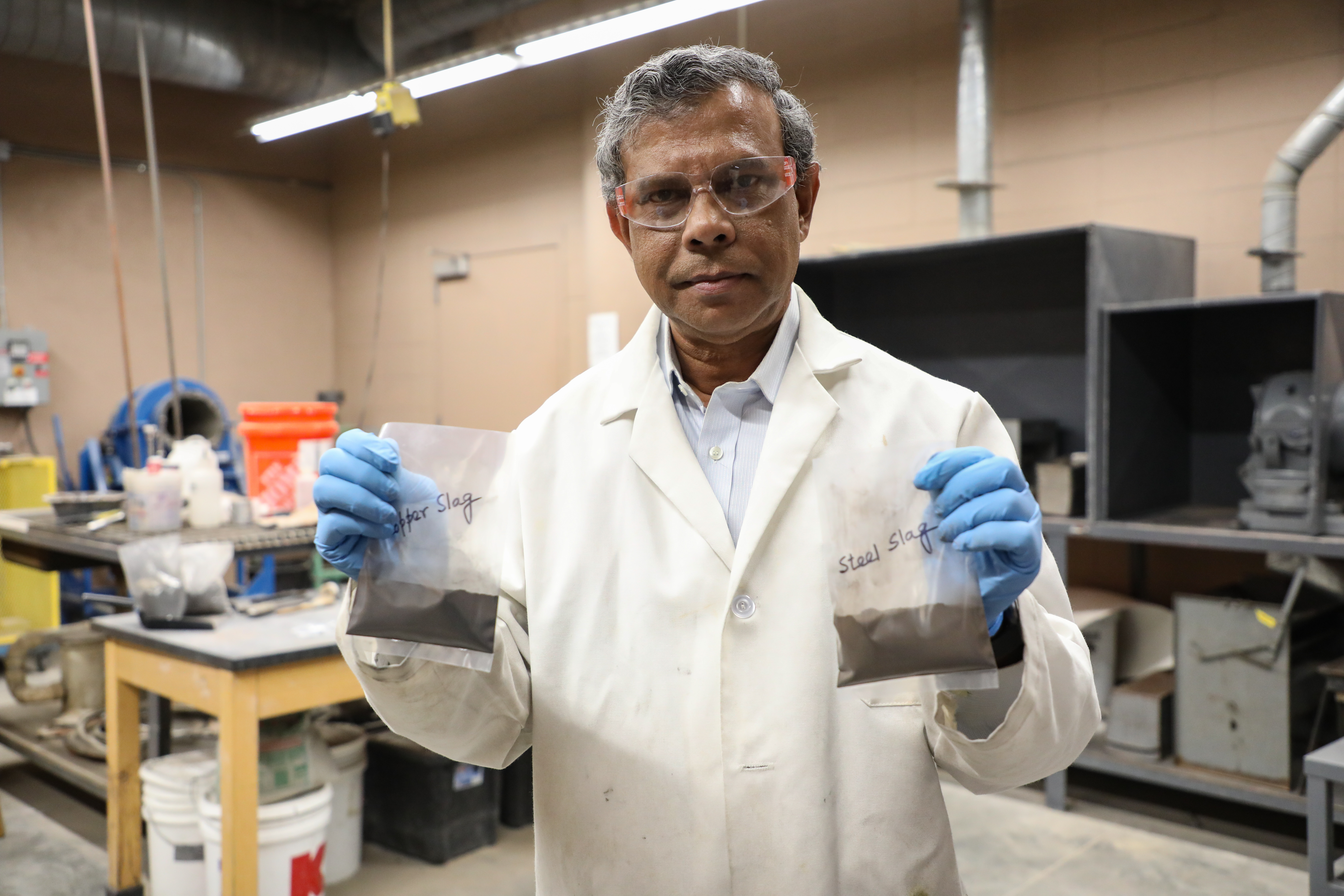DOE Awards $700,804 to Montana Tech Researchers for Slag Recovery

Montana Technological University researchers have been awarded $700,804 by the U.S. Department of Energy Office of Science to investigate the recovery of valuable metals from waste slags generated by mining and metallurgical industries.
The project proposes a novel technique to extract valuable metals from mixed waste slag piles. The recovered metals could then be marketed for industry, and the project will alleviate environmental metal-leaching concerns with slag piles such that the remediated secondary slag could be used in the construction industry. The project will be powered by energy recovery from diverted plastic waste streams.
“This project is an exciting application of Montana Tech’s extractive metallurgy expertise in a way that addresses local environmental clean-up problems while also having national implications in reducing the carbon footprint,” Vice Chancellor of Research Dr. Angela Lueking said. “Developing new engineering techniques that reduce carbon emissions, while utilizing waste materials and simultaneously alleviating environmental remediation concerns, is indicative of the Montana Tech commitment to earth, energy, and environment. The project was selected from a competitive national competition, which serves as yet another example of how Montana Tech faculty are breaking ground in their discipline on a national-scale.”
The university will use the funds to purchase equipment, design a reactor, pay graduate student workers, and obtain raw materials and laboratory supplies.
“Waste slags often contain valuable metals besides being an environmental concern,” Associate Professor of Metallurgical and Materials Engineering Dr. Avimanyu Das said. “Our research aims to recover valuable metals from the slags. We will derive the required energy and a reagent for the process from another waste, the plastics. Thus, we will adopt a waste-to-wealth concept to develop a process with a low carbon footprint in this research.”
Das is the principal investigator, with Dr. Jerry Downey, Department Head of Metallurgical and Materials Engineering as the co-PI. Their team will consist of a Ph.D. student, a master’s student, and two undergraduate trainees. Dr. Guy Fredrickson is representing the Idaho National Laboratory on the project, which will take place over the next three years.
“In this research, we envisage recovering valuable metals from waste slags while mitigating some of the environmental concerns associated with slags,” Das said. “Our research is significant from an applied angle. This research will likely attract further funding for development and pilot-scale operations. Relevant industries are likely to consider improvement and commercialization of the process. It will certainly be another feather in Montana Tech’s cap and enhance the contributions of Montana Tech to society.”
The team has not yet picked the waste slags they will experiment on, but steel and a copper slag will be targeted. The team has also chosen the methods they will use to try to extract the valuable metals.
“We plan to employ the plasma technology to develop the reactor needed to derive the energy/reagent from plastics,” Das said. “This will likely shorten the reaction time and achieve a much faster rate of plastics decomposition. The decomposition products will then be utilized in the metal extraction process from the target slags. Another important aspect of the research is that after the recovery of the metals, the remaining slag may find application in the construction sector.”
The project is already underway at Montana Tech’s campus, as strategies for reactor design are formulated, and raw materials are identified and procured to be used in testing.
For more information, please contact: Amanda Badovinac at abadovinac@mtech.edu or 406-496-4828.